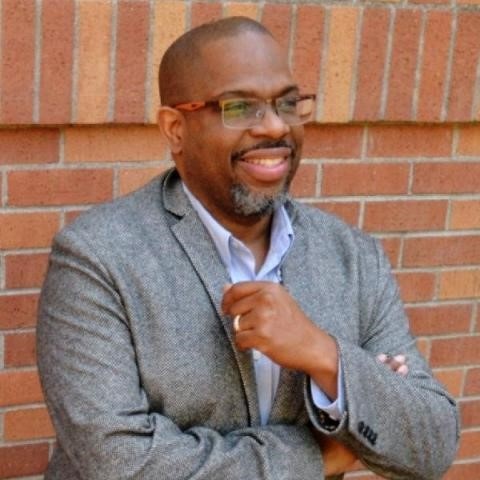New Program Director Takes Helm of Antelope Valley Engineering Program
Access to jobs and internships at top aerospace organizations is one of the CSULB Antelope Valley Engineering Program’s biggest draws for s

“I’m pleased to note that our industry partners have informed us that they still have a tremendous need to hire engineers right now during this pandemic,” said Priest, who joined AVEP in mid-July. “The desire to hire still exists, but students may be placed in remote positions or on-site where they have to wear personal protective equipment.”
In Priest’s view, proximity to the aerospace industry is one of the chief benefits of the program, which offers opportunities for transfer students to earn bachelor’s degrees in electrical engineering or mechanical engineering in 2 ½ years. “Many of the largest global aerospace companies are right here—Boeing, Lockheed Martin, Northrop Grumman, and others,” he said.
On its advisory board are representatives from Edwards Air Force Base, NASA Armstrong Research Center, Raytheon, BAE Systems, Lockheed Martin, and Northrop Grumman, as well as the City of Lancaster, the Antelope Valley Board of Trade, and the Greater Antelope Valley Economic Alliance.
The program was established as a win-win for aerospace organizations seeking engineering graduates and transfer students trying to finish their engineering degrees in the Antelope Valley, a region without a four-year university.
Proximity to hiring companies isn’t AVEP’s only advantage. “Internally, you have a cohort-style program that requires a 2 ½-year commitment. The program is taught by amazing faculty who are dedicated, knowledgeable and really have a passion for providing an outstanding engineering education to the students,” Priest said.
“It’s an interconnected program community where everyone works together to support student’s efforts to successfully persist through the program and earn an impactful career.”
Currently, three quarters of the cohorts are transfer students from Antelope Valley College.
The decade-old program can accommodate 25 students in each of its two majors. “That allows students to develop a more intimate understanding of the material,” Priest said. “Students get the support they need to be successful.
As is the case throughout the California State University system, classes this fall will take place virtually, except for a small number of hybrid classes.
“We are all living in unprecedented times and educational institutions had to make immediate changes to how courses were to be delivered in the midst of the pandemic. I’m pleased at what the AV faculty and staff were able to accomplish last spring transitioning into an online format. The faculty have all of the resources they need and the natural byproduct of that is students receive a quality education,” he said.
The importance of students receiving a quality education is top of mind. But Priest is also concerned about how students are faring in the pandemic.
“It’s imperative that we ensure that our current students are supported and their basic needs are met in light of COVID-19,” said Priest, whose staff are surveying students to make sure they have access to housing, food, computer equipment and Wi-Fi. “We want to know more about the wellness of our students. If you’re having challenges finding a place to lay your head, focusing on an engineering program would be extremely difficult. We have a number of resources available on our main campus to support our students in need.”
Although the majority of AVEP students are drawn from Antelope Valley College, Priest said there’s tremendous opportunity to expand recruitment to Kern County and colleges in the Los Angeles region. He also sees potential to expand the program to other engineering sectors, such as agriculture, advanced manufacturing, distribution, and fabrication, as well as partnering with other higher ed institutions, foundations, and government entities for the purpose of advancing research opportunities.
“AVEP’s efforts to broaden its regional footprint by fostering community alliances with the focus being research will go a long way to expand resources for faculty and students as well as offer us a seat at the table as we seek to support industry and government efforts to answer many of the challenging questions they may have, particularly those where innovation is needed to solve them.“ he added.
Priest obtained his Ed.D. Doctor of Education in Interdisciplinary Leadership from Creighton University in 2016. He earned a master’s degree in Forensic Sciences from National University in 2003 and a bachelor’s degree in Psychology from Fresno State University in 1999. Prior to joining CSULB, he was an administrator for the Venture Lab with University of California, Merced, which included lead oversight of the program’s manufacturing facility and biotech laboratory.
With more than 16 years’ experience in college admissions, recruitment, and outreach, as well as strategic retention and persistence planning and implementation, Priest was formerly lead marketing professional for a telecommunications company and a former executive with his own company.
He said he was drawn to AVEP because of the opportunity “to work for a university that offers an outstanding education, and more specifically, where the student-focused undergraduate degree program offers the essential tools needed for students to excel in their careers.”





